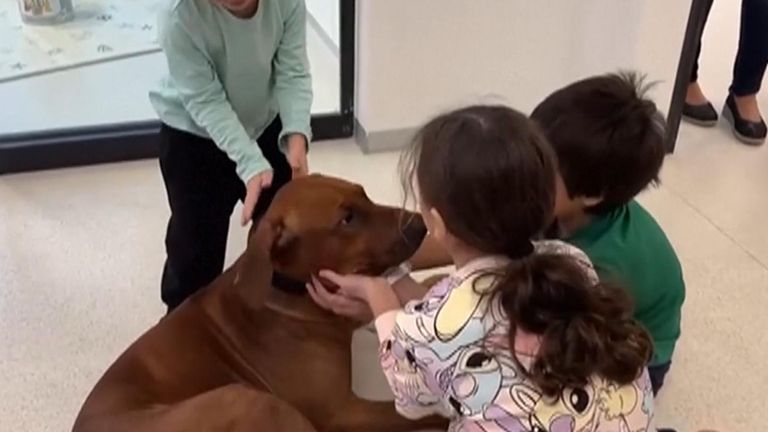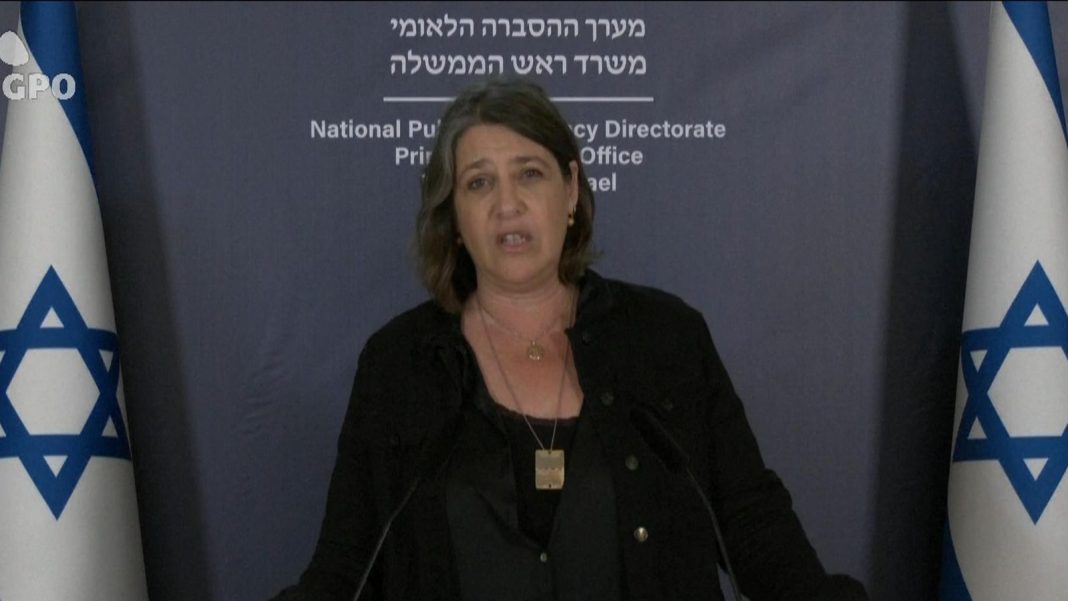The chief executive of a children’s hospital in Israel says the trauma suffered by youngsters released by Hamas is so great they “just don’t know how to treat” them.
A total of 78 women and children were brought back to Israel from Gaza during the seven-day truce last week, having been held for around 50 days by Hamas since being taken hostage on 7 October.
The children came back “very skinny”, according to Schneider Children’s Medical Centre’s chief executive, and had to ration the food they got during their captivity.
Read more: Israel-Gaza latest as IDF operations in northern Gaza ‘nearly complete’
While they are beginning to eat normal portions, Dr Efrat Bron-Harlev said “the hard part is how to treat their soul” – adding “we just don’t know how to treat those children”.
“We’ve read everything possible about children in captivity with their children, without families, things have happened in different places,” she said in a news conference.
“But an event like this, of children facing what they did on 7 October as an event by itself.
“And then in captivity in such a horrific place for so many days, with or without others… this is something we did not know how to deal with.”
A helicopter carrying hostages arriving at the helipad of the Schneider Children’s Medical Centre
They have a “very large team” of social workers, psychologists and psychiatrists, she said, who have seen “the worst” over 33 years at the centre, but these problems are entirely new.
One child told staff she “actually thought everyone forgot” about her, Dr Bron-Harlev said, because Hamas told her “nobody cares about you”.
Read more:
Who are the first 79 Israeli hostages released by Hamas?
Hamas claims youngest Israeli hostage has died
“They told me, she said, that nobody cares about you anymore,” she said.
“Nobody’s looking for you. Nobody wants you back. You can hear the bombs around. All they want to do is to kill you and us together.
“A 13-year-old girl – this is what she has to hear for 50 days.”
Please use Chrome browser for a more accessible video player

0:30
Uriah, 4, Yuval, 8 and Ofri, 10, reuinted with their dog Rodney last week
She said the immediate challenge is for her to “believe her parents were looking for her” and “care for her”.
“This is not something that takes a day or two to even start understanding how you make that child believe,” she added.
Other children have been asking staff for permission to open doors or cabinets, while some have even asked if they can shower for the first time since their kidnapping.
Some only got to bathe with a bucket of cold water during captivity, she said, “if they’re lucky”.







